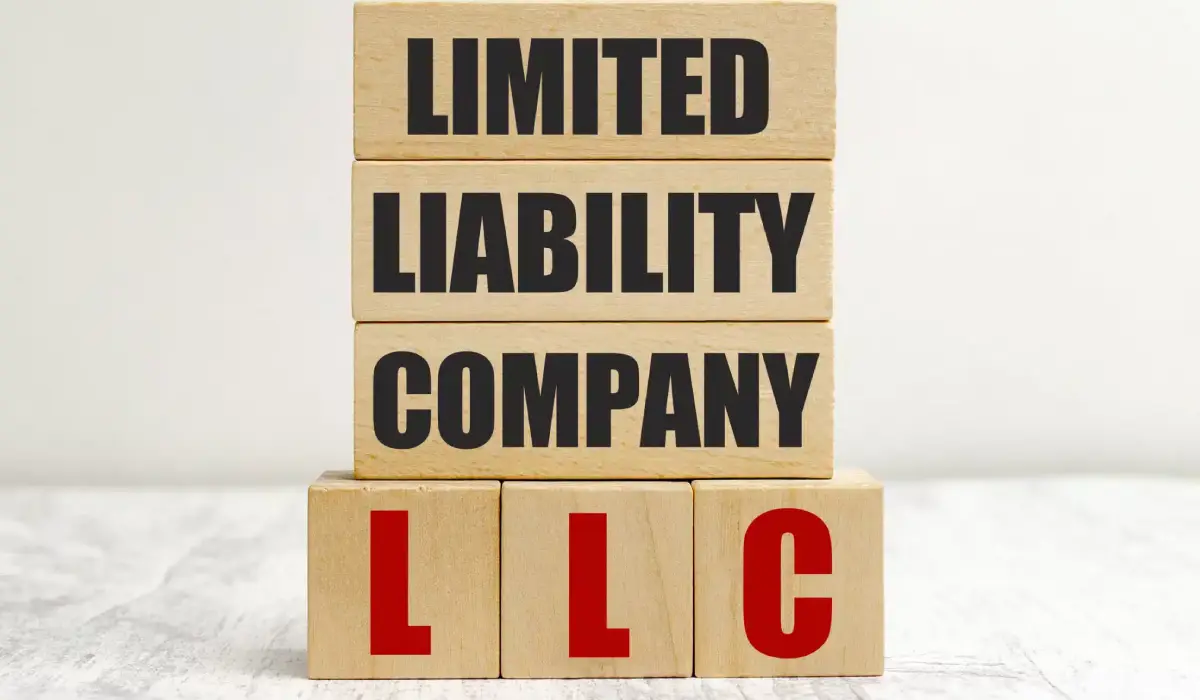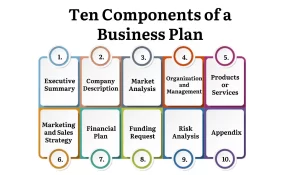Starting and growing a business often requires funding, and if you operate as a Limited Liability Company (LLC), understanding your loan options is essential. LLCs are popular business structures because they combine the liability protection of a corporation with the flexibility and simplicity of a partnership. In this guide, we will explore LLC business loans, how to qualify for llc and loan, the types available, and alternatives to traditional loans. By the end of this article, you’ll have the tools to secure funding for your LLC.
Understanding LLC and Loans Business
An LLC business loan is a type of small-business loan designed to provide funding for businesses structured as LLCs. These loans can cover various needs, including startup costs, purchasing inventory or equipment, expanding your business, using existing debt, and more. LLC small business loans are offered by banks, credit unions, online lenders, and Small Business Administration (SBA) lenders.
If you operate your business finances as an LLC, you can access funding to achieve your goals and grow your business. However, understanding the requirements and options available is key to choosing the right loan.
What is an LLC Business Loan?
An LLC business loan is a type of financing specifically designed for limited liability companies (LLCs). These loans provide business owners with the capital needed to cover various expenses, such as startup costs, purchasing equipment, expanding operations, and more. LLC business loans can be obtained from a variety of sources, including traditional banks, credit unions, online lenders, and the Small Business Administration (SBA). By securing an LLC business loan, small business owners can access the funds necessary to achieve their business goals and drive growth.
Benefits of LLC Business Loans
LLC business loans offer several significant benefits to small business owners. Firstly, they provide essential access to capital, enabling businesses to grow and expand their operations. Whether it’s investing in new equipment, hiring additional staff, or launching a marketing campaign, an LLC business loan can make these initiatives possible.
Additionally, LLC business loans help business owners maintain control and ownership of their company. Unlike equity financing, which requires giving up a portion of ownership, loans allow owners to retain full control while still accessing the necessary funds. Moreover, these loans offer protection for business debts and personal assets, as the liability is limited to the business itself.
Another key benefit is the opportunity to build and establish a positive credit history with private lenders. Successfully managing and repaying an LLC business loan can enhance the business’s credit profile, making it easier to secure future financing on favorable terms.
Benefits of Forming an LLC
Forming an LLC provides several tax advantages and benefits to small business owners, making it a popular choice for structuring a business.
Liability Protection
One of the primary benefits of forming an LLC is liability protection. As an LLC, the business is considered a separate legal entity from its owners. This separation means that the owners’ personal assets, such as their homes and personal savings, are protected in the event that the business is sued or incurs debt. This personal liability protection can provide peace of mind for business owners, helping them avoid significant financial risk.
Tax Benefits
LLCs also offer tax benefits to small business owners. As pass-through entities, LLCs do not pay taxes at the business level. Instead, the business income is passed through to the owners and taxed at their individual tax rates. This structure helps business owners avoid double taxation, which can occur in corporations where income is taxed at both the corporate and individual levels. By reducing their personal expenses and overall tax liability, LLC owners can retain more of their earnings to reinvest in their business.
Flexibility in Ownership Structure
LLCs offer flexibility in ownership structure, accommodating a wide range of business needs. An LLC can have any number of owners, known as members, and ownership can be structured in various ways to suit the business’s goals. This flexibility makes it easier for business owners to attract investors and raise capital. Additionally, LLCs can choose how they want to be taxed, either as a sole proprietorship, partnership, S corporation, or C corporation, providing further customization to meet their specific tax and operational needs.
By understanding and leveraging these benefits, small business owners can make informed decisions about forming an LLC, working capital, and securing the necessary financing to support their business’s growth and success.
Can You Get a Business Loan with an LLC?
Yes, LLCs can qualify for business loans. Lenders provide loans to various business types, including LLCs, sole proprietors, and corporations. However, most lenders do not specifically advertise their products as “LLC loans.” Instead, they offer small-business loans that LLCs can apply for, provided they meet the lender’s requirements.
LLCs with bad credit can still qualify for loans through alternative lenders. These lenders offer financing solutions specifically designed for business owners with bad credit, such as online term loans and alternative lending platforms.
Common requirements for business loan approval include:
- Good credit scores: Both personal and business credit scores play a significant role in loan approval.
- Qualifying income history: A steady business income is essential to prove repayment ability.
- Collateral: In some cases, you may need to offer collateral to secure the loan.
How to Qualify for a Business Loan
Check Your Credit Score
Lenders often assess both personal and business credit scores when reviewing loan applications. Personal credit scores range from 300 to 850, with higher scores indicating better creditworthiness. A strong credit score increases your chances of approval and can help you secure better loan terms, such as lower interest rates. Some alternative lenders may approve loans for borrowers with scores in the 600s but may charge higher interest rates.
Determine What You Need
Before applying for a loan, it’s crucial to determine how much funding you need and how you plan to use it. Think about the purpose of the loan—whether it’s to buy equipment, hire staff, or cover operational costs. This preparation will help you identify the best loan type and lender for your business.
Types of Loans for LLCs
Bank Loans
Bank loans offer some of the most competitive loan amounts, terms, and interest rates. However, they usually have strict requirements. To qualify for a bank loan, your LLC will need strong financial statements, good credit scores, and a proven track record of business success. While bank loans can be challenging to obtain, they’re an excellent option if your LLC meets the criteria.
Unsecured Loans
If your LLC lacks valuable assets or has cash flow and you prefer not to use assets as collateral, unsecured loans may be a viable option. Since unsecured loans pose higher risks to lenders, they often come with higher interest rates compared to secured loans. Despite this, unsecured loans provide flexibility for businesses without significant collateral.
Online Term Loans
Online lenders offer term loans with more flexible requirements than traditional banks. These loans are ideal for LLCs that need quick access to funds. However, the convenience comes at a price—online term loans typically have higher interest rates and fees than bank loans. Borrowers only pay interest on the amounts they draw from online term loans. Be sure to review the terms carefully before accepting an online loan.
LLC Business Loan Requirements
Review Loan Requirements
To qualify for a small-business loan, review the lender’s criteria, including:
- Credit report: Ensure your personal and business credit reports meet the lender’s minimum requirements. Lenders evaluate these reports to assess your creditworthiness and determine loan eligibility and interest rates.
- Time in business: Many lenders prefer businesses that have been operational for at least one to two years.
- Annual revenue: Lenders often have revenue thresholds to ensure your business can repay the loan.
Compare Lenders
Comparing lenders is crucial to finding the best loan for your LLC. Consider factors such as:
- Interest rates
- Repayment terms
- Loan amounts
- Funding speed
Be cautious of lenders promising “guaranteed approval” or offering loans without credit checks, as these may be predatory lenders.
LLC Loan Fees and Collateral
Loan Fees
Before committing to a loan, calculate the total cost of borrowing. Common fees include:
- Origination fees: Charged for processing the loan application.
- Prepayment penalties: Fees for paying off the loan early.
- Late payment fees: Charged if you miss a payment deadline.
Collateral and Personal Guarantees
LLC loans can be secured or unsecured. Secured loans require collateral, such as equipment or property, while unsecured loans do not. However, even for unsecured loans, lenders may require personal guarantees. If the loan proceeds and you provide a personal guarantee, your personal assets could be at risk if the loan isn’t repaid. Remember that an LLC’s liability protection does not apply if personal guarantees are involved.
Gathering Necessary Documents
Financial Documents
When applying for an LLC loan, lenders typically require:
- Personal and business credit reports
- Personal and business tax returns
- Personal and business bank statements
- Financial statements, such as profit and loss statements and balance sheets
- Collateral information, if applicable
Business Documents
Supporting documents strengthen your loan application. These may include:
- Business plans
- Marketing materials
- Contracts with clients or suppliers
Providing thorough documentation helps lenders understand your business operations and increases your business line chances of approval.
Applying for Your LLC Business Loan
Once you’ve gathered the required documents, complete the loan application. Many online lenders allow you to submit applications and connect financial and bank accounts, digitally. Traditional banks and credit unions may require in-person applications and manual submission of paperwork. LLCs can also apply for an SBA loan if they meet the criteria established by the U.S. Small Business Administration.
Reviewing Your Loan Agreement
Before signing a loan agreement, review the terms carefully. Pay attention to:
- Interest rates
- Repayment schedules
- Associated fees
If anything is unclear, ask the lender for clarification. Ensuring you understand the line of credit agreement helps you avoid surprises and manage the loan effectively.
Receiving Funds
Funding timelines vary depending on the lender. Online lenders may approve and disburse funds within 24 hours, while traditional bank and SBA loans may take weeks or months. Plan accordingly to ensure the loan funds are available when needed.
Alternatives to Traditional Business Loans
If an LLC business loan isn’t the right fit, consider alternative funding options:
- Personal loans: Use personal credit to fund your business.
- Business credit cards: Access revolving credit for everyday expenses.
- Family and friends loans: Borrow money from trusted individuals.
- Small-business grants: Seek grant opportunities for specific industries or demographics.
- Crowdfunding: Raise funds through platforms like Kickstarter or GoFundMe.
These options can provide flexible funding without the stringent requirements of traditional loans.
Getting an LLC business loan involves careful planning, research, and preparation. By understanding loan types, comparing lenders, and gathering the necessary documents, you can increase your chances of securing funding for your business. If traditional loans aren’t an option, explore alternatives like personal loans or grants. With the right funding, your LLC can achieve its goals and thrive in a competitive market.






